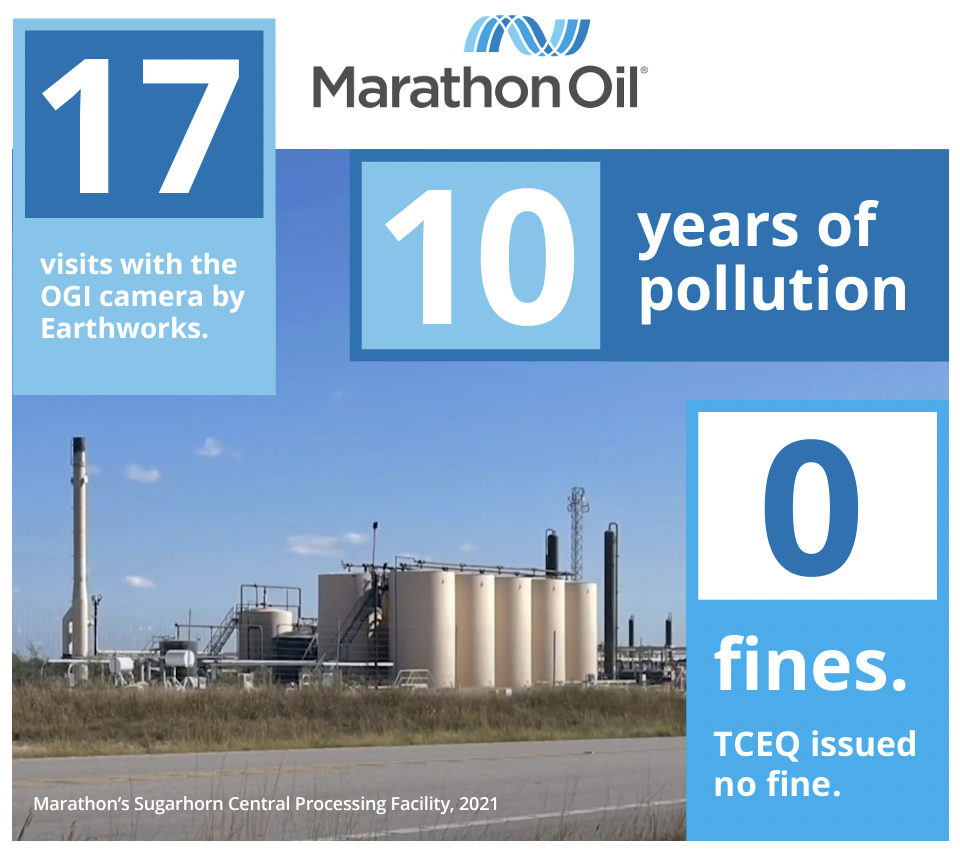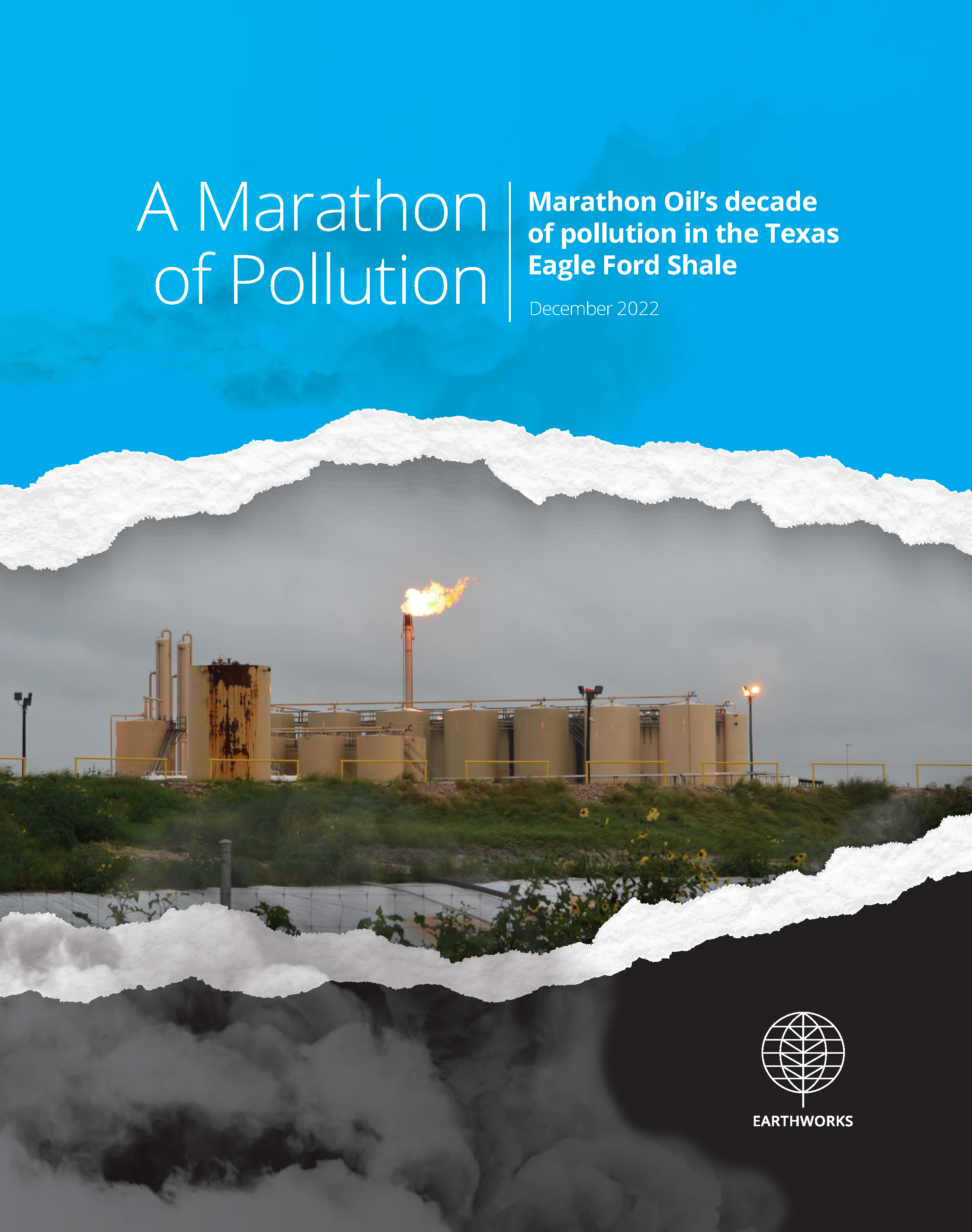Earthworks has been documenting air pollution at oil and gas operations throughout Texas, which produces more oil and gas than any other state in the United States. In some cases, these emission events are consistently documented at sites owned by the same operators. In the Eagle Ford Shale which cuts through a huge swath of Southern Texas, including College Station and Laredo, one of these companies is Marathon Oil.
For the past decade Earthworks has witnessed and recorded Marathon Oil sites failing to minimize the amount of toxic pollutants they release into the air which endangers workers, residents, and the climate. Even after Earthworks submitted 17 different complaints to the Texas Commission on Environmental Quality (TCEQ) after 60 site visits to Marathon facilities across the Eagle Ford Shale, this trend of ignored emissions unfortunately continues. Based on TCEQ’s Notice of Violation database, Marathon has received more than 300 violations from TCEQ over the past seven years, but only two of those violations have resulted in an administrative order and subsequent fine. That means that only about 1 percent of the sites cited by TCEQ actually received administrative orders and fines.

At one site in Karnes County, the Marathon Sugarhorn Central Processing Facility, the TCEQ has failed to meaningfully address consistent pollution documented at the site despite their own investigations, complaints from citizens and eight years of Earthworks complaints submitted with optical gas imaging (OGI) footage of pollution. In one instance, TCEQ went so far as to directly refuse to investigate a complaint from a concerned member of the public attempting to notify the TCEQ of possible dangerous levels of pollution from Marathon. When investigations were conducted, the TCEQ failed to issue fines to improve operations.
The responsibility of operating in a way that reduces harm to people and the planet does not only fall on Marathon — the TCEQ has failed to curtail pollution from Marathon and from many other operators both large and small, leaving a harmful industry unregulated. This must be resolved, and it is clear that neither operators nor regulators are doing so. Such harm cannot and should not be allowed to continue.


